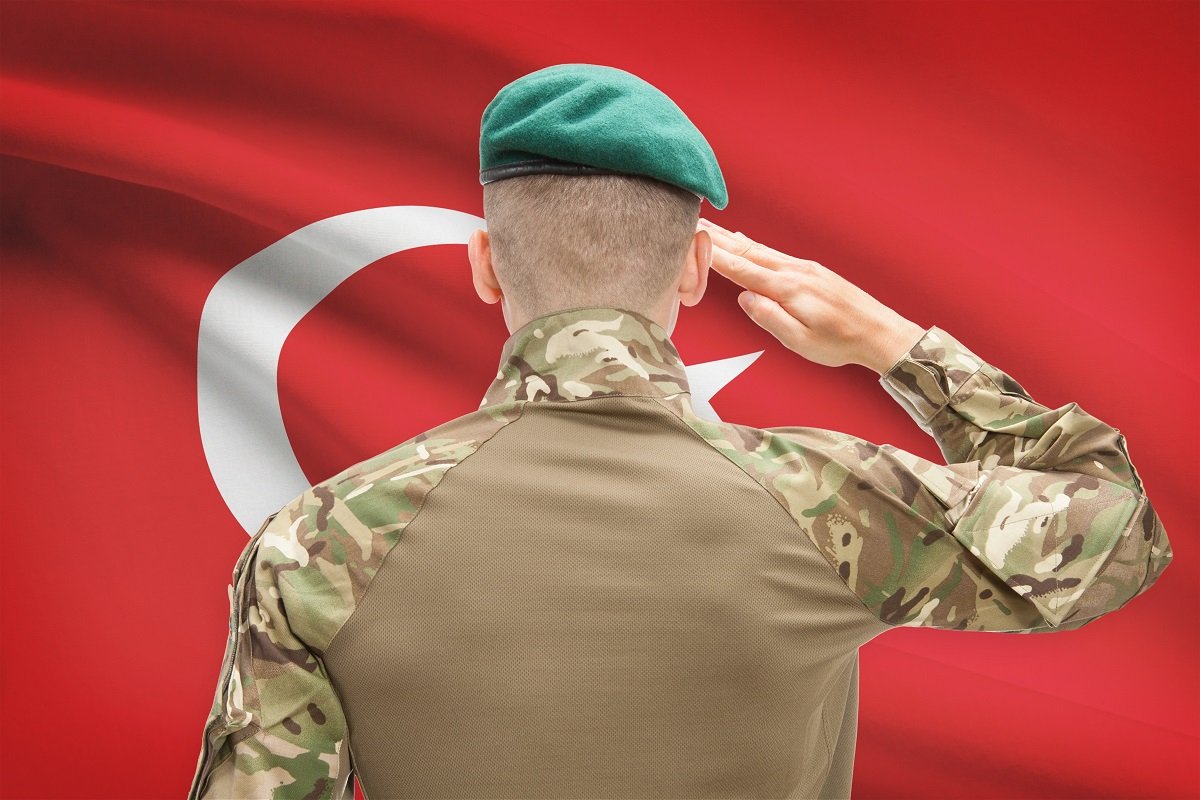Turkish government has issued detention warrants for at least 32 military officers, detained 67 military officers and dozens of civilians across Turkey on Thursday over their alleged links to the Gülen movement.
The Mardin Chief Prosecutor’s Office has issued detention warrants for 25 soldiers of various ranks as part of a massive post-coup witch-hunt targeting people claimed to have links to the Gülen movement on Thursday. It was reported that 10 soldiers were detained in operations in 13 Turkish provinces and the Turkish Republic of Northern Cyprus (KKTC).
Meanwhile, in a Osmaniye-based investigation the number of military personnel who were detained in Turkey’s 33 provinces has reached to 62 on Thursday. Osmaniye Chief Prosecutor’s Office has issued detention warrants for 75 military personnel including 56 military officers who are on their active duties in Turkish military over their alleged links to the Gülen movement on Wednesday. It was reported that 13 of remaining 15 military personnel were detained by police and arrested by a court previously.
Also, Edirne Chief Prosecutor’s Office has issued detention warrants on Thursday for 7 military officers who are on their active duties in Edirne, Mardin, İstanbul, Şırnak, Hatay, Kars and Ankara provinces over their alleged links to the Gülen movement. 5 out of 7 military officers were detained.
In a Kayseri-based probe 14 people were detained in Kayseri and Adana provinces on Thursday over their alleged links to the Gülen movement. The detentions were done following the detention warrants issued by Kayseri Chief Prosecutor’s Office for 26 people over their alleged use of mobile phone messaging application ByLock. It was reported that there are military officers and teachers among those who have been wanted.
Turkish authorities believe that ByLock is a communication tool among followers of the faith-based Gülen movement. Tens of thousands of people, including civil servants, police officers, soldiers, businessmen and housemakers, have either been dismissed or arrested for using ByLock since the failed coup attempt on July 15, 2016.
Ten people were also detained in Bilecik province over their alleged links to the Gülen movement on Thursday.
Late Tuesday, seven former officers were sentenced to aggravated life imprisonment in İstanbul’s 23rd High Criminal Court for their alleged role in the takeover of an İstanbul Municipality building as well as a mosque on July 15, 2016. The officers were convicted of attempting to overthrow the constitutional order through violence as part of the controversial coup attempt.
Maj. Özgür Araz, Cpts. Yavuz Selim Dayı, Muhammed Hayrettin Şahin and Levent Güngör, Lt. Ayhan Bağdat and Sgts. Mehmet Türkmen Seyhan and Fatih Alkan had allegedly occupied a logistics center of the Greater Istanbul Municipality building along with a mosque. All of the arrested officers were sentenced to an additional 200 years in prison for depriving people of their liberty through violence.
In another trial in Istanbul on Wednesday, conscripts who were allegedly ordered to occupy İstanbul’s Bosporus Bridge gave an account of the moments. Aykut Şafak Kaya, one of the 143 defendants, was deployed at Kuleli Military School whose soldiers were dispatched to the bridge, said they had no option but to obey the orders of their superiors during the coup attempt.
He said they were convinced that they were being sent to the bridge to implement security measures “against a terrorist attack.” He said his superiors ordered them to tell motorists who were stopped en route to the bridge a “declaration of martial law.” He also described how two traffic policemen were beaten by soldiers after their car was stopped. Kaya blamed Maj. Ahmet Taştan and non-commissioned officer İbrahim Gül for ordering the troops to fire on civilians. Gül was killed in a shootout with police while Taştan is among the jailed defendants.
“We were ordered to fire upon anyone approaching them. I saw two men carrying Turkish flags but we were ordered to fire anyway,” he said. Kaya added that Gül threatened to shoot them if they did not fire upon the civilian crowd. “He told us that those people were terrorists. After the tanks arrived, soldiers started firing on the crowd. I saw a woman falling down. A man on a motorcycle was heading towards a tank. Someone shouted ‘suicide bomber’ and Ahmet Taştan ordered us to fire. Some soldiers fired and the man fell from his motorcycle. I don’t know what happened to him later,” he told the court. He said he fled the scene and hid under a military truck with other conscripts. “I heard a tank fire four times. I saw a first lieutenant firing on civilians from the tank,” he said.
Turkey survived a controversial military coup attempt on July 15, 2016 that killed 249 people. Immediately after the putsch the ruling Justice and Development Party (AKP) government along with Turkey’s autocratic President Recep Tayyip Erdoğan pinned the blame on the Gülen movement.
Fethullah Gülen, who inspired the movement, strongly denied having any role in the failed coup and called for an international investigation into it, but President Erdoğan — calling the coup attempt “a gift from God” — and the government initiated a widespread purge aimed at cleansing sympathizers of the movement from within state institutions, dehumanizing its popular figures and putting them in custody.
Turkey’s Justice Ministry announced on July 13 that 50,510 people have been arrested and 169,013 have been the subject of legal proceedings on coup charges since the failed coup.















